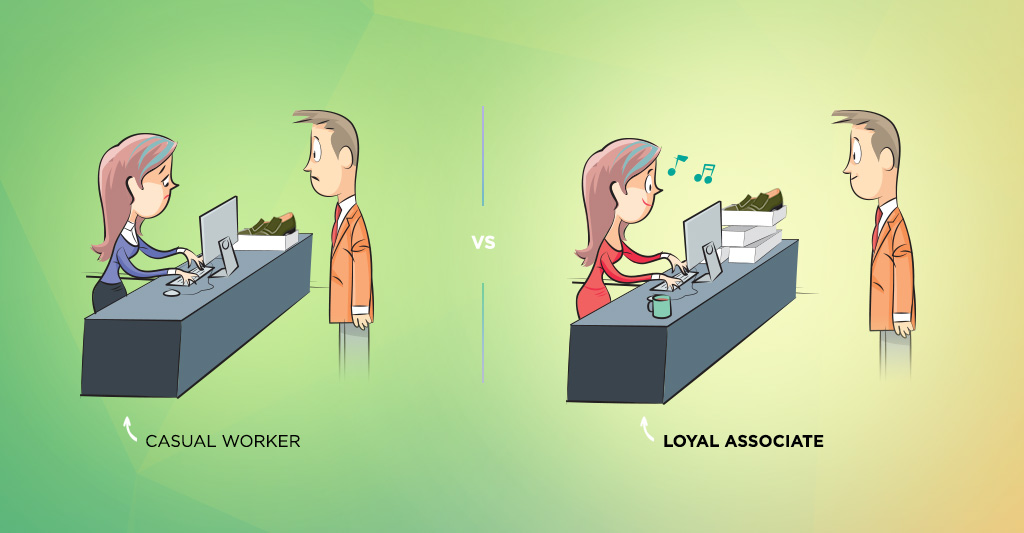Training programs for retail employees can turn millennials and Gen Z—who are becoming the largest age group in the industry’s workforce—from casual workers to loyal associates.
I got my first job when I was 18. For little more than a year, I worked at a call center, taking calls for a sports betting company. I had to give betting lines to customers, update scores, and ease the nerves of people risking a lot of money during games.
I was horrible at it.
The job wasn’t really exciting or challenging; most of the time, I was bored out of my mind and was only looking forward to checking out and leave.
I remember the one time I actually felt I was learning something: About eight months into the job, they taught me how to take horse bets. A guy named Nick, an expert in horse racing, sat down with me and taught me all I needed to know about the “sport of kings;” he also told me there were far greater opportunities in the horse racing department and that I had potential.
Sadly, that was a one-time deal: I didn’t receive further training whatsoever. I scarcely took any horse bets, never heard of open positions in their department, and whenever I ran into Nick, he barely said hi to me.
That sounds sad and impractical, right? Having an unmotivated young workforce is something you’d want to avoid, right?
Well…
Millennials (such as myself) and Gen Zers make up an increasingly large part of the retail workforce. In fact, according to the Pew Research Center [1], millennials are already the largest generation in the US labor force.
Moreover, according to EY, this young core of retail employees actually want to learn and improve in their jobs, which is great for businesses: Companies want to turn their employees into associates who can provide great customer experience and boost sales. “(Millennials and Gen Z) find career-focused perks and professional development opportunities more important than other opportunities,” says the EY study.
Here’s the bad news, though: Lessonly [3] research revealed that 46 percent of retail associates don’t receive enough training to perform their jobs effectively, and 54 percent of retailers are looking for better associate training and enablement.
In How Training Can Engage and Retain Millennial and Gen Z Retail Associates, an article published by Training Industry, author Taryn Oesch explores how training programs for retail employees can turn uninvested workers into trustworthy associates who want to build a career within their company.
Training is a genuine investment, especially when it involves younger employees who are only now starting their career path. Oesch says that training lets team members know they are valued. “Providing clear career paths, for example, shows associates that you believe they are important and can improve retention by showing them their long-term potential with the company,” she writes.
Further, she quotes Annie Hodson, a Solution Architect at SweetRush, who says that “many retail employees may not know about the many career pathways available to them within a particular company once they achieve new skills.” Talent development programs can help companies retain Gen Z employees, and show them they have a path for growth at the organization.
We’re learning more about these demographics and what they value in their work environments all the time. “Authenticity is important to millennials and Gen Z employees. They want to be part of organizations that have similar values and that they feel like they are doing good things in the world,” Hodson adds.
For a more in-depth look at how training young employees can turn into a great business decision, head over to Training Industry and read Taryn Oesch’s full article, How Training Can Engage and Retain Millennial and Gen Z Retail Associates.
Resources
- http://www.pewresearch.org/fact-tank/2018/04/11/millennials-largest-generation-us-labor-force/
- https://www.lessonly.com/blog/2018-state-retail-employee-training-infographic/





